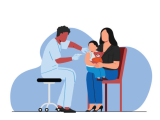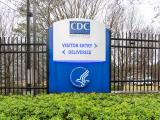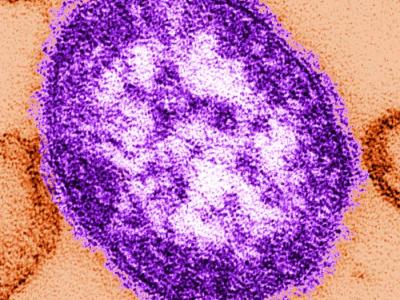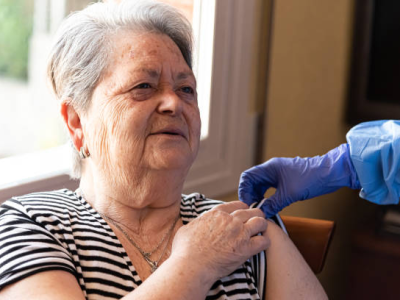Feb 15, 2011 (CIDRAP News) – In tough economic conditions, the United States has sharpened its global health goals to more efficiently expand its reach and invest resources in the most promising treatment and diagnostic tools, Rajiv Shah, MD, director of the US Agency for International Development (USAID) said in a speech today at the National Institutes of Health (NIH).
Shah, appointed to lead USAID in December 2009, right before Haiti's earthquake, outlined some of the Obama administration's global health goals at the NIH's annual David E. Barnes Global Health Lecture. Dr. Francis Collins, NIH director, said that today was the first time a sitting USAID director has addressed the NIH's global health group. Shah's speech was broadcast live on the NIH Web site.
In May 2009 President Barack Obama released a global health initiative designed to help reshape foreign assistance and better coordinate the nation's global health aid.
Shah said health problems undermine social stability in developing nations, which can erode US security of that of other nations. However, the recent financial crisis has led to some rethinking about how best to achieve global health goals, such as reducing the HIV burden in African nations.
Some of the administration's themes are improving health delivery efficiency at the country level by encouraging local leadership and to build more efficiency into existing programs, such as the President's Emergency Plan for AIDS Relief (PEPFAR). For example, Shah said the program in Kenya was able to expand the service area from two to eight regions without increasing the cost of the program. "This allows us to extend service to more people in need," he said.
However, redefining the nation's global health initiatives will also require additional steps, he said. "We cannot simply seek to do more of the same in an effort to provide services using currently available tools and technologies. Instead, we need to focus our efforts on facilitating a continuum of invention and innovation from bench to bush."
Technology advancements, such as the pneumococcal conjugate vaccine, offer the opportunity to save 500,000 lives a year, Shah said.
Past approaches to global health focused on building more hospitals and training more doctors, but global health officials are now gravitating toward making better use of community workers who can deliver quality medical services. An example is delivering better vaccines and diagnostic tools to women and children in their own communities.
Under previous US administrations, global health officials made good headway in battling HIV in African countries and malaria in tropical countries. Shah said the successes have officials eyeing possibilities for other tough health challenges, such as tacking tuberculosis (TB) in poor urban settings.
USAID hopes to find ways to lower the cost of GeneXpert testing systems that can quickly detect drug-resistant TB strains and support the development of new short-course therapies for TB that could help address tough patient compliance challenges inherent in the current long-course treatment regimens.
Other new technologies that could make a big global health impact include point-of-case diagnostics for malaria, new insecticides against disease-spreading mosquitoes, and gel-based microbicides to block HIV infections, he said.
"And vaccines are the best public health investments we can make," he added, alluding to malaria, polio, TB, and HIV as priority conditions.
However, USAID needs international and health organization partners to help fund and spur new developments, he said. "In a time of fiscal austerity, if major donors withdraw, we regress," he said, pointing to surges of new malaria infections and deaths in Sri Lanka and Zanzibar. "Our choice is clear. We can't 'unwind' the programs."
Shah said he's encouraged that many children in Tanzania now have access to the same childhood vaccines that his baby son is receiving. "World-class vaccines don't need to be delivered in a world-class hospital. That is our battleground, and USAID is trying to lead the fight to change the mindset," he said.
See also:
Feb 14 NIH press release
Feb 15 USAID press release
Obama Global Health Initiative Web site
















